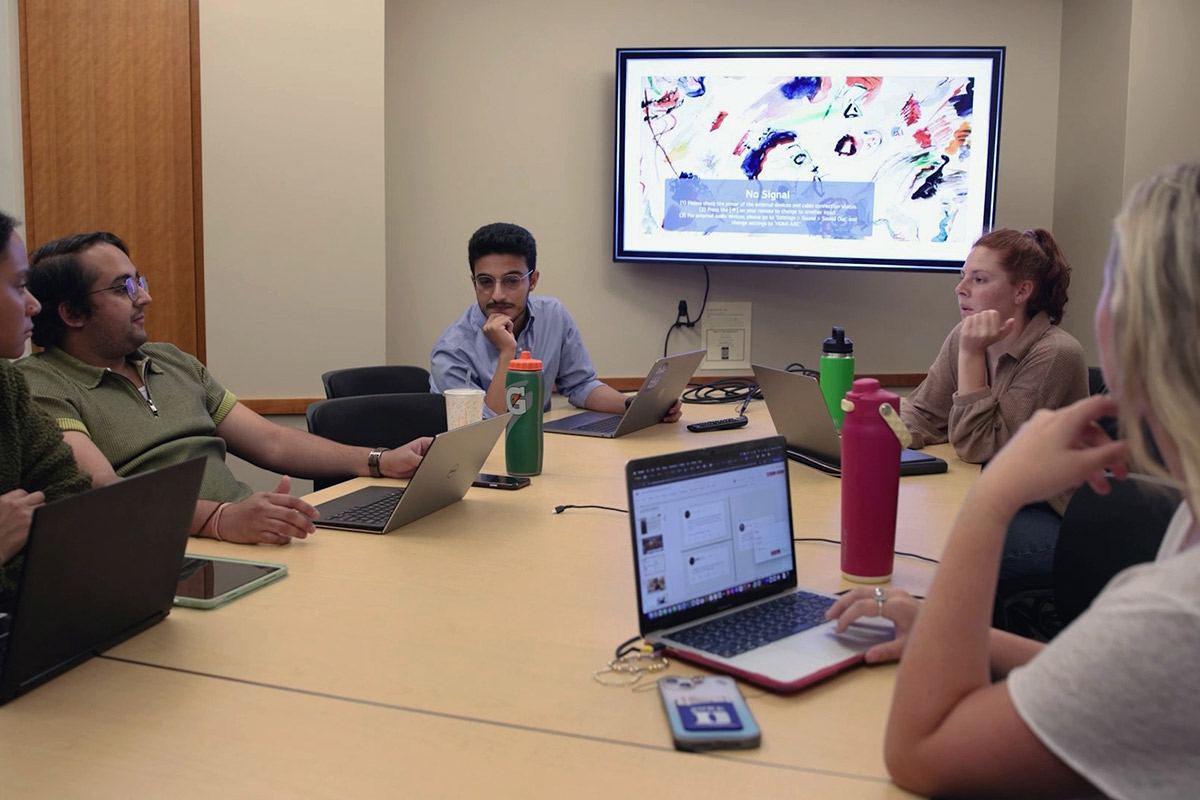How NCITE and Duke Are Using War Games to Spark Interest in National Security
In an NCITE-funded project, researchers at Duke University taught a class that aimed to spark an interest in national security careers using war game simulations.
- published: 2025/03/18
- contact: NCITE Communications
- phone: 402.554.6423
- email: ncite@unomaha.edu
- search keywords:
- war games
- experiential learning
- duke
- ncite

By Juliana Cooper (NCITE Communications Student)
Preparing students to enter the workforce is a concern for every field. But in homeland security, building a ready pipeline of talented, motivated young people is essential for protecting the nation.
So, how does one get college students interested in the big picture issues that affect national security? By turning class into a game.
"Forcing students to grapple with all the complexities of the modern world make(s) it an incredibly rich experience for them," said David Schanzer, J.D., an NCITE researcher and professor in Duke’s Sanford School of Public Policy.
"It’s oftentimes very easy when you walk into most classes to just listen and absorb. But then in this class, you really have to actually produce a lot of the knowledge sharing and the wisdom."
Playing Practitioner
In an NCITE-funded project at Duke University, Schanzer led a course in which students engaged in an eight week-long simulated “war game,” making decisions that, in the world of the game, either deepened or mended global tensions and impacted national security.
The course, hosted in the fall of 2023 and spring of 2024, centered around a game called “Acceleration,” developed by Daveed Gartenstein-Ross, Ph.D., the founder and CEO of Valens Games, co-instructor of the course and adjunct professor at Sanford. The simulation imagines a contemporary future, focusing on international crises like migration or natural disasters.
Schanzer and Gartenstein-Ross divided the students into five distinct teams, representing a mixture of governments, such as Germany and the California governor’s office, and influential companies such as Google. Students were given strategic interests according to their designated organization and used this information to establish negotiations and make decisions that affected the game’s progress throughout the semester.
"It’s oftentimes very easy when you walk into most classes to just listen and absorb. But then in this class, you really have to actually produce a lot of the knowledge sharing and the wisdom … It’s helpful to structure your mind in a way that’s very realistic to how the real world is when you’re in these positions of decision-making," said Eni Owoeye, a student in the course.
Captivated Talent
The class included graduate and undergraduate students between the ages of 18-34. The students ranged from many academic backgrounds, including public policy and political science, mathematics, economics, and interdisciplinary studies.
"Of course we can’t actually put learners in national security situations," said Jessica Sperling, Ph.D., director of applied research, evaluation and engagement at Duke’s Social Science Research Institute. "And so, the use of a simulation is a really interesting alternative (be)cause it gives that experiential learning opportunity in a way that is ethically sound."
Sperling and the research team surveyed students about their experience in the course after completion. They found that:
- 88% of the students reported the class aided in their personal development, including confidence and multiperspectivity. Additional qualitative data shows development in professional competencies such as causal thinking, teamwork, decision-making and leadership.
- 78% of students expressed that the class influenced their academic interests. The simulation showed these students how their current or potential studies are relevant to national security.
- 73% of students reported the class influenced their career aspirations. 13% of this group expressed interest in national security as a very serious career option.
This class continues to be offered at the Duke Sanford School of Public Policy.
NCITE Insights No. 26 — War Games: Simulation-Based Training for the HSE
On the latest episode of the podcast, host Blake Ursch sat down with Daveed Gartenstein-Ross, Ph.D., and Eleanor Ross (no relation) to discuss their contributions to the Duke course. Gartenstein-Ross is a co-PI on the project and is the founder and CEO of Valens Games. Eleanor Ross is the director of game design at Valens Games and was a student in the course last spring, the first semester it was offered. She graduated from Duke University in May with her bachelor’s degree in international comparative studies and Arabic.
Disclaimer: The views and conclusions contained in this podcast are those of the authors and should not be interpreted as necessarily representing the official policies or views, either expressed or implied, of the U.S. Department of Homeland Security, the University of Nebraska, or guest-affiliated institutions.
Listen and subscribe to NCITE Insights on major podcast platforms: